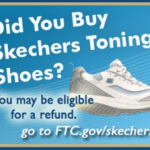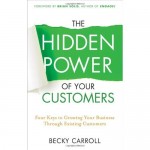When commenting on the issue of the hacking of millions passwords of LinkedIns users John Sileo in the Washington Post shares a

LinkedIn - a lesson on internet security for your business.
personal story of how his on line identity was stolen and used (in my mind) a horrific way. It’s ‘there by the grace of God go I’ sort of stuff. John also gives some great tips on what to do after the hack as well as more general advice about on-line security.
Increasingly as both individuals and small businesses owners our web footprint gets larger and larger every day. So my advice is to read this article and act, ignore this to your peril.
LinkedIn – a lesson on internet security for your business.



 payments to be made by Skechers in regards to the Skechers Shape Ups and am really unsure of what I should call this post to get the best readership!
payments to be made by Skechers in regards to the Skechers Shape Ups and am really unsure of what I should call this post to get the best readership!

 passion for my customers. The source of this passion has steamed from a book I have started reading called The Hidden Power of Your Customers by Becky Carroll. You and I know that existing customers should not be overlooked. You and I know that are know the it’s cheaper and more effective to sell to existing customers than to try and source new ones. The customer retention strategies by Becky help to get us to a point we can move forward, and if you have been in business a while, renewed. Also this book will help those just starting out to learn great skills from the start and maybe avoid some of the mistakes that are so easily to made when dealing with the public.
passion for my customers. The source of this passion has steamed from a book I have started reading called The Hidden Power of Your Customers by Becky Carroll. You and I know that existing customers should not be overlooked. You and I know that are know the it’s cheaper and more effective to sell to existing customers than to try and source new ones. The customer retention strategies by Becky help to get us to a point we can move forward, and if you have been in business a while, renewed. Also this book will help those just starting out to learn great skills from the start and maybe avoid some of the mistakes that are so easily to made when dealing with the public.
